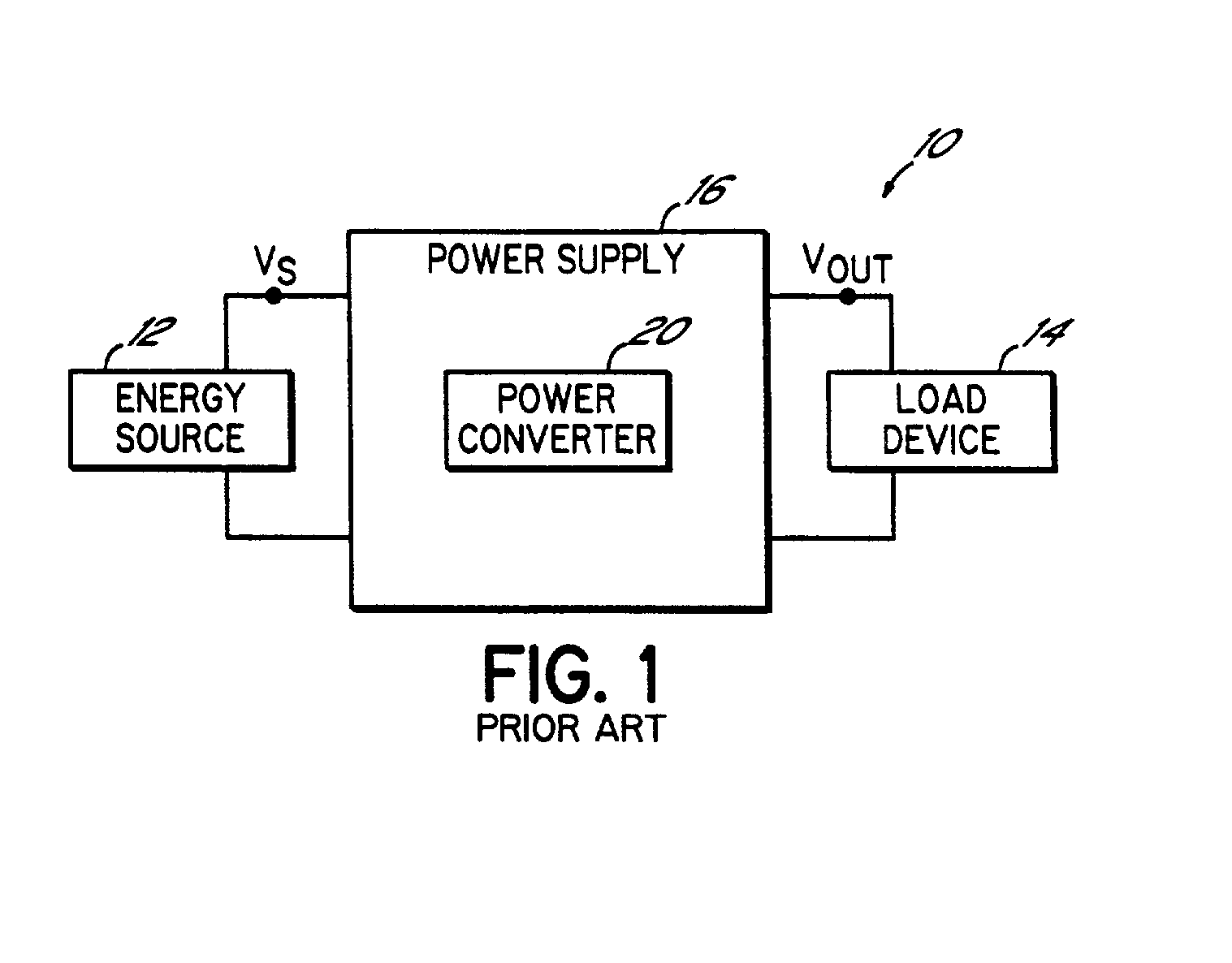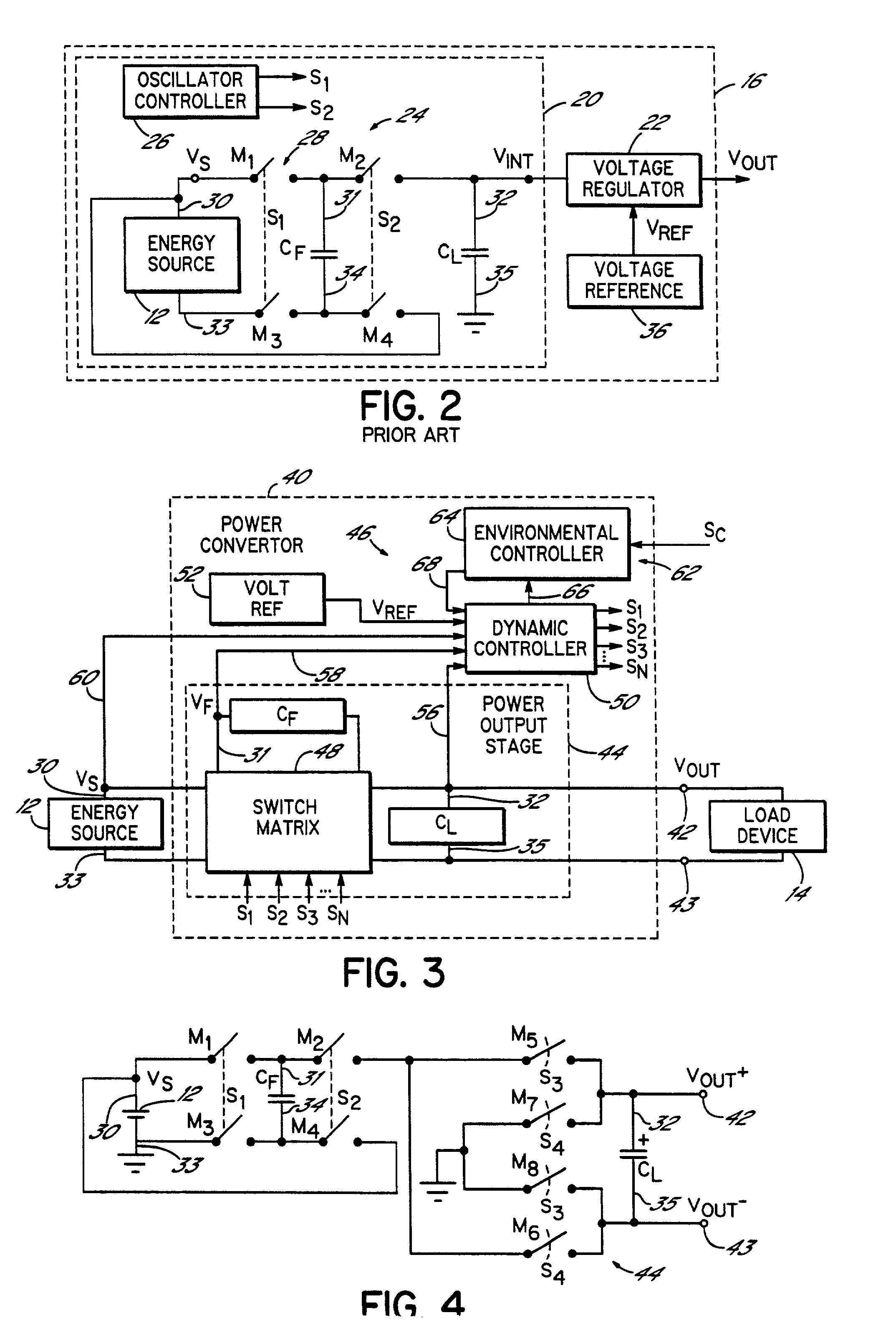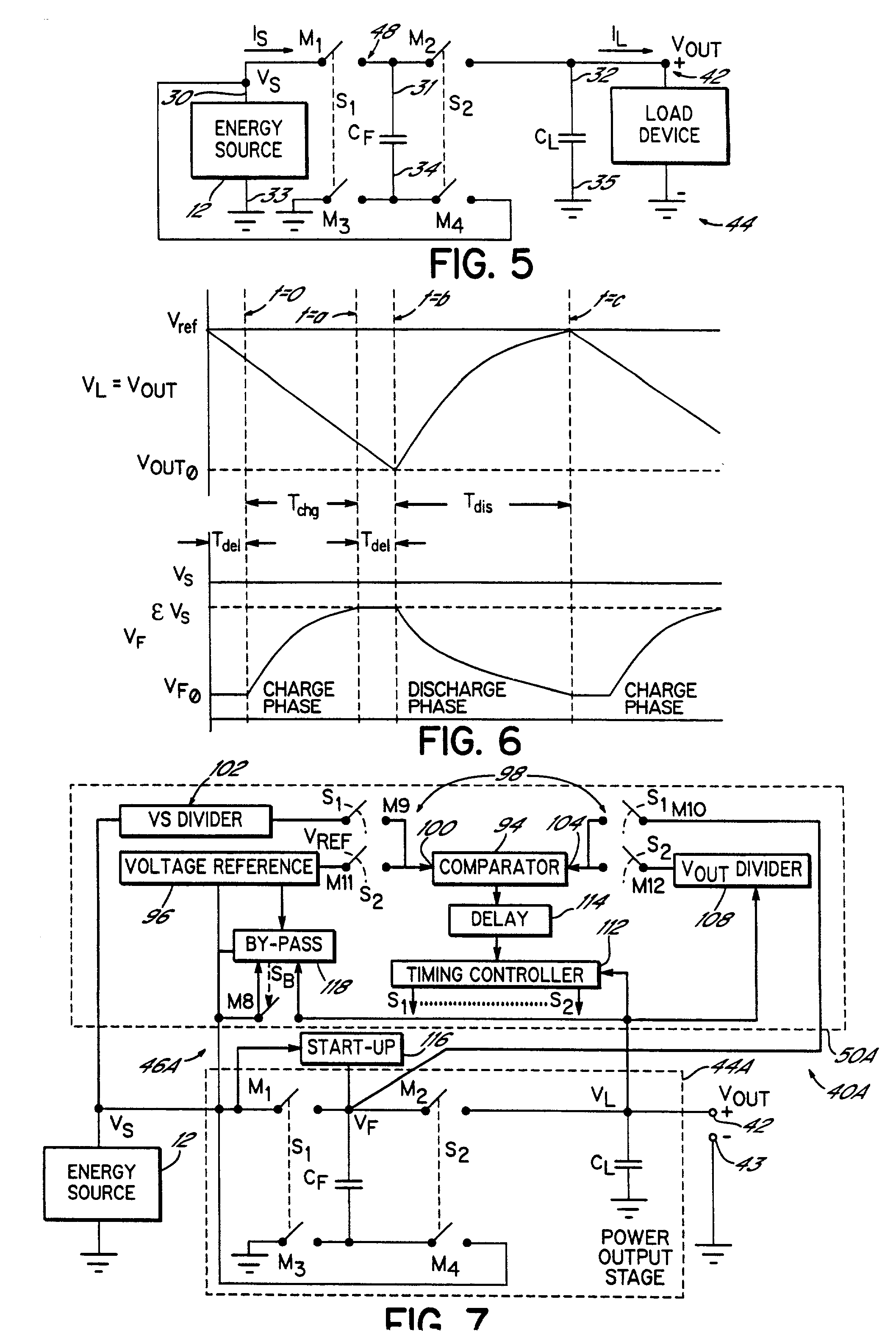Progressive start-up circuit for activating a charge pump
a start-up circuit and charge pump technology, applied in the direction of electric variable regulation, process and machine control, instruments, etc., can solve the problems of low power consumption, small size and cost, and the safety limitation of the amount of current that can be provided by the energy source, so as to enhance the service life of the battery and energy and amplitude on demand, and the effect of small siz
- Summary
- Abstract
- Description
- Claims
- Application Information
AI Technical Summary
Benefits of technology
Problems solved by technology
Method used
Image
Examples
Embodiment Construction
POWER CONVERSION
[0055] The operation and advantages of dynamic control of a charge pump in accordance with the principles of the invention is best understood by considering alternative power conversion techniques in existing power converters.
[0056] For example, a linear regulator is one type of existing power converter. Linear regulators have an efficiency that is directly proportional to the ratio of the input voltage V.sub.S to the output voltage V.sub.OUT. Thus, an input voltage V.sub.S that is twice the required output voltage V.sub.OUT would result in about half of the power from an energy source 12 being inefficiently consumed by the power converter 20. Due to the lower efficiency and resulting heat generation, linear regulators require a heat sink that often complicates or precludes integration into low profile packages such as those complying with the PCMCIA specification standard. Moreover, linear regulators generally require two discrete capacitors, further limiting reduct...
PUM
 Login to View More
Login to View More Abstract
Description
Claims
Application Information
 Login to View More
Login to View More - R&D
- Intellectual Property
- Life Sciences
- Materials
- Tech Scout
- Unparalleled Data Quality
- Higher Quality Content
- 60% Fewer Hallucinations
Browse by: Latest US Patents, China's latest patents, Technical Efficacy Thesaurus, Application Domain, Technology Topic, Popular Technical Reports.
© 2025 PatSnap. All rights reserved.Legal|Privacy policy|Modern Slavery Act Transparency Statement|Sitemap|About US| Contact US: help@patsnap.com



